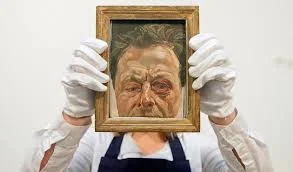On a warm August afternoon, walking down La Promenade des Anglais, the rhythm of my steps approximating the basso continuo of my thought process, I open the floodgates.
There is plot, but I’m always more interested in situations. Situations change and that’s a kind of plot. Language is a plot, too, and so are mix-ups and nonsense. Really, any situation can be a plot because as it changes, time moves forward.
Forward, I walk.
And a writer meets another writer who’s ten years younger and has a keen eye for people on the street, but has a drowned mind. The writer sees a tennis player meeting another tennis player who is ten years younger, but has reached stardom. The writer meets his friend from childhood and wonders, What took you so long? All within a writer’s day.
I write the books I have yet to read. In essence, I jump over the edge of tradition and throw my words up in the air hoping for the wind to take them places no one else has reached.
Yes, I wrote and explored. I learned not to be harmless.
Not harmless…
Everyday contains a moment when you think you will touch immortality. What follows next is the stuff of novels.
And when the rain comes down, my words are safe in my dry within. I flourish from inside my skull.
From that very skull the vision of meaning ascends.
Is meaning created through the interaction between person and text? It seems so. In many of his short stories, Borges implies the disturbing supposition that the meaning of literary works is entirely dependent on the varying historical and social contexts in which they are read. In other words, that literary meaning is constructed through mental processes irrevocably tied to location and period. Reading, then, is more central to a text’s intellectual “life” than its writing and, consequently, a reader is more important to a text than its writer.
We can see how influential Borges’s ideas were on contemporary writers. For example, in Hopscotch, Cortázar invites the reader to participate in his innovative project by letting the reader choose in what order to read the chapters. He writes: “For my part, I wonder whether someday I will ever succeed in making it felt that the true character and the only one that interests me is the reader, to the degree in which something of what I write ought to contribute to his mutation, displacement, alienation, transportation.”
I like his use of “alienation.”
If we are to have a high esteem for the reader, we have to invite her to the party. Not every sentence needs to be complete, not every plot needs a twist, nor does every flower need a color. Let the reader create alongside the text. Easy prose is akin to baby food. It is time to take the spoon out of the reader’s mouth.
I walk some more, never looking back.
In an effort to transcend traditional narrative, I strive to wield words under the constraints of the novel’s tremendous weight. Consequently, I discard many rules to bring forth this vision. In so doing, I may be creating an anti-democratic experience that leaves out the middle-class, or middle-reader, the populous group which has generated the traditional novel. Yes, I explore the inner world of my characters, experiment with nonlinear formats, employ multiple points of view, embrace philosophical constructs, use lyrical language, and make clear and not-so-clear allusions while not explaining everything in an expository way. I may be writing outside of the traditional mold but I am not the first, nor will I be the last one. My challenge, dear reader, is how to manage this difficult and complex task, how to pull off the high-wire act without crashing down to the floor. I invite you to watch.
I watch myself as I walk but I do not see me that well.
Most books today land on the reader’s lap, defanged, tamed by the weight of tradition, ready for easy consumption. I prefer when the book doesn’t offer itself to the reader like a shelled pistachio. Better to compel readers to do the work of shelling through words, rhythms in prose, and the unconscious in order to savor the book. And it is the alliance between the reader’s effort and the author’s meditations that conjures the best literature.
Un-conscious, uncon-scious, unconsc-ious…
The author who tries to expand the frontiers of the human experience can fail. On the other hand, authors of conventional literary products never fail, they take no risks, they use the same proven formula, a comfortable formula, a formula of concealment. Using language for the mere purpose of obtaining an effect, without going beyond what’s expected, is essentially immoral. The ethical approach is found in the search for new formulas.
I slow down and start to walk in a diagonal down to the old port of Nice.
The relationship between an artist and reality is always an oblique one, and indeed there is no good art that is not consciously oblique. If you respect the reality of the world, you know that you can only approach that reality by indirect means. My path is a diagonal one.
Creativity on the part of the author involves structural innovation, the ability to generate an, in principle, infinite number of different structures. But the reader’s creativity is expressed by functional innovation: the ability to imagine what a text could mean. A writer only begins a book. A reader finishes it.
This is where a cup of coffee is completely necessary. But I chose red wine instead.
According to Foucault, “Literature is a form of language that breaks with the whole definition of genres as forms adapted to an order of representations, and becomes merely a manifestation of a language which has no other law than that of affirming in opposition to all other forms of discourse its own precipitous existence.” It then follows that in literature, questions of fact or truth are subordinated to the primary literary aims of producing a structure of words for its own sake, and the sign-values of symbols are subordinated to their importance as a structure of interconnected motifs. So, can we finally do away with literary genres?
Maybe…
According to Ezra Pound, [we live] “in a country in love with amateurs, in a country where the incompetent have such beautiful manners and personalities so fragile and charming that one cannot bear to injure their feelings by the introduction of competent criticism.”
That is the USA for you.
So how, then, do we identify good writing? It is now plain that any debate over who is, or is not, a better writer, or what is, or is not, a more legitimate writing is, for the most part, a surrogate social struggle. The more pertinent questions are what is the community being addressed in the writing, how does the writing participate in the constitution of this audience, and is it effective in doing so. The state of our literary nation is fractured.
And I think of her…
A woman thinks thoughts that barely make sense. A man thinks thoughts that make no sense to anyone. A woman knows not to reveal she knows you’re after her thoughts, that you want to devour her. A man tells you nothing but lays a suspicious look on you. A woman knows not to trust you. This man thinks you are all mighty. You know you’re not but he doesn’t know that. A woman keeps on thinking thoughts that barely make sense to her.
And as I walk through the cities whose people still believe in libraries and bookstores, I feel as if I am walking through Paradise. And for as long as I can, I will suspend my disbelief. I will go on dreaming.
Nice, please, don’t close them down. The temples of the book.
It is not about religion, that is the easy way out. It is not about idiocy, for you would need to be almost mentally retarded. It may be about the very essence of the human condition, a malleable mush, a fertile ground. We are children of our time, of our town, and of our ignorance. So how do we transcend hate? With books, naturally.
Another glass of wine…
The relationship between a reader and a narrator is as intense and emotionally complex as any relationship between that reader and another human being. The slow manifestation of the soul of the other, a satisfying human need, occurs in the turning of pages and the deciphering of life as rendered by prose. The novel offers an intercourse with selves, albeit imagined, but just as real. And as the contemporary self is being obliterated by the continuous fragmentation of attention and time, we need the novel more than ever.
Breathing now. Wary of the day.
I would like to know what the ultimate purpose of writing fiction is. What are the best approaches to producing innovative prose? What is the real value of reality in fiction? Should the novel be clear and open to all? Who are the readers? And in a more existential vein, does it matter to the universe whether I write a novel or take a piss in the river?
Please, don’t answer.



















